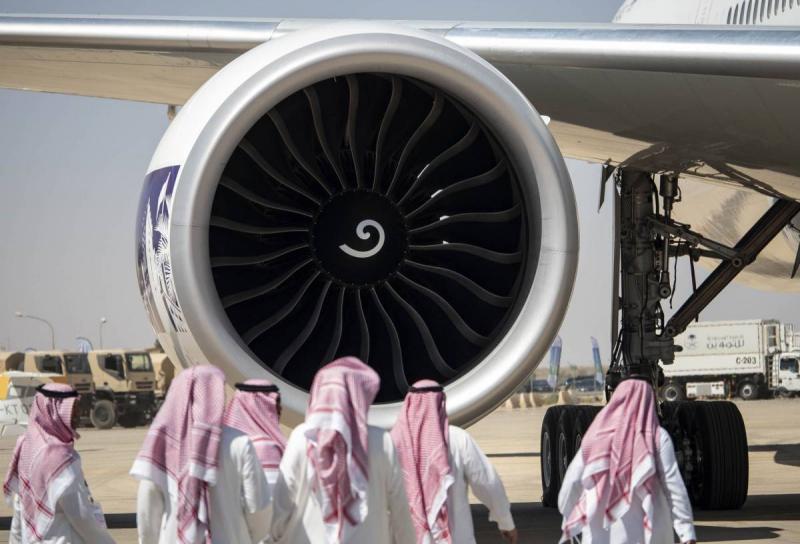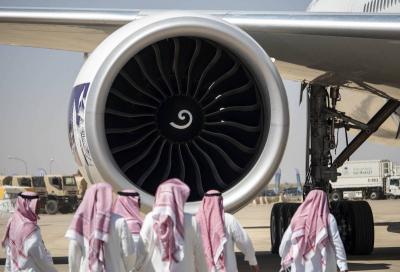The Kingdom of Saudi Arabia plans to compete for international passenger traffic by establishing a new national airline to rival the giants Emirates and Qatar Airways, aiming to open a new front in the fierce regional competition. Saudi Crown Prince Mohammed bin Salman, who is pushing for economic diversification to reduce the Kingdom's reliance on oil revenues and create new job opportunities, announced the national transport and logistics strategy on Tuesday, which aims to make Saudi Arabia the fifth largest air transit hub.
According to two informed sources, the new airline will enhance international routes and replicate the success of existing Gulf airlines by transporting people from one country to another via air travel in the Kingdom, known in the industry as the sixth freedom of air transport. This strategy is seen as a transformation within Saudi Arabia, which currently has other airlines operating besides the state-owned Saudi Arabian Airlines and its low-cost subsidiary, Flyadeal, providing local services and point-to-point flights to and from the country, which has a population of 35 million.
### Escalating Competition
The Saudi expansion threatens to intensify the battle for passenger transport at a time when the pandemic has cast a shadow over the travel sector. Long-haul flights, such as those operated by Emirates and Qatar Airways, are expected to take the longest to recover. Riyadh has already moved to compete with the United Arab Emirates, which is a business, trade, and tourism hub in the region. The Saudi government has stated that starting in 2024, it will stop awarding contracts to companies that have not established regional headquarters in the Kingdom.
Robert Mogielnicki, a research fellow at the Arab Gulf States Institute, said, "Business competition in the airline industry has always been fierce. Regional competition is also heating up. Some disruptions in regional relationships loom." Dubai, the world’s largest international air travel hub, has announced a five-year plan to grow air traffic and freight routes by 50% and double its tourism capacity over the next two decades.
Crown Prince Mohammed bin Salman is working to attract foreign investment to establish new industries, including tourism, with ambitions to increase the total number of visitors to 100 million by 2030, compared to 40 million in 2019. Brendan Sobie, an aviation consultant, believes that "Saudi Arabia has the ability to move forward with its aviation and tourism strategy while some will retreat and withdraw," noting that "it is a high-risk strategy, but also reasonable given its location and comprehensive diversification goals."
### Boost for Tourism
The establishment of any airline requires substantial capital, and experts warn that if Saudi Arabia's ambition is to compete in transit routes, it may have to endure expected losses for years. "With a new airline targeting international transport, the large population in Saudi Arabia will generate direct traffic that can mitigate expected losses," according to aviation consultant John Strickland.
Emirates airline recorded a record annual loss of $5.5 billion, compelling Dubai to intervene with $3.1 billion in government support. Meanwhile, Etihad Airways has scaled back its ambitions after spending billions trying unsuccessfully to build a major hub in Abu Dhabi, the capital of the UAE.
Informed sources expect the new airline's headquarters to be in the capital, Riyadh, with the Saudi Public Investment Fund assisting in its establishment. Saudi Arabia is also working to develop non-religious tourism through massive projects supported by the Public Investment Fund. Additionally, it has launched social reforms to achieve further openness in the Kingdom, including the allowance of public entertainment options.




